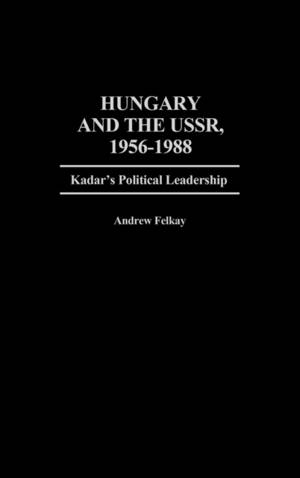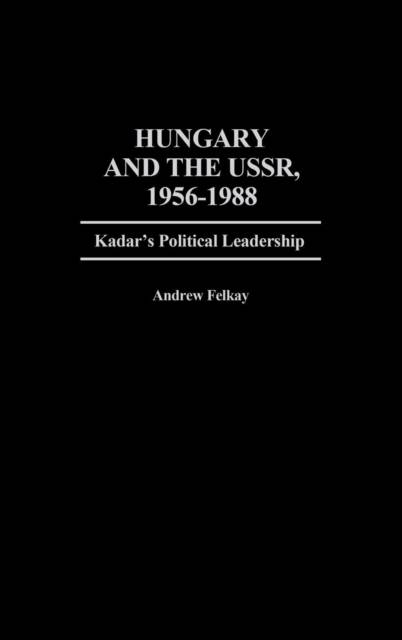
- Afhalen na 1 uur in een winkel met voorraad
- Gratis thuislevering in België vanaf € 30
- Ruim aanbod met 7 miljoen producten
- Afhalen na 1 uur in een winkel met voorraad
- Gratis thuislevering in België vanaf € 30
- Ruim aanbod met 7 miljoen producten
Omschrijving
In this comprehensive analysis of Hungarian political and economic developments over the past 30 years, Felkay focuses particularly on the role played by the country's long-tenured Communist leader, Janos Kadar. Basing his study on a comprehensive critical analysis of the official Hungarian press, ideological journals, relevant documents, and other statistical reports from 1956 to the present, Felkay argues that Hungary's rapid recovery from the cataclysmic events of 1956 was the direct result of Kadar's ability to overcome the alienation of his compatriots without incurring the displeasure of the Soviet Union. Felkay's reliance on primarily Hungarian Communist sources offers the reader a unique window on Kadar's political emergence as a pragmatic and unusally successful Communist leader.
Felkay begins with a brief history of Hungary and Soviet-Hungarian relations to the end of World War II, setting the context for the detailed political case study which follows. Subsequent chapters detail Kadar's youth, his early involvement with the Communist party, and his installatiton by the Soviets as Hungary's leader in the wake of the 1956 uprising. Felkay demonstrates that despite the circumstances of his selection and his lack of domestic support, Kadar emerged as an effective political leader in his own right. His introduction of innovative non-Marxist structural economic reforms, Felkay shows, enabled Kadar to create one of the most efficient economic systems within the Soviet bloc. Felkay continues with chapters covering the Czechoslovak crisis of 1968, the slowing of reforms and the effects of worldwide price explosions in the early 1970s, and the mounting economic problems that have confronted Kadar and Hungary in the 1980s. The concluding chapters address the most recent developments, including Kadar's removal from office and the impact of Gorbachev's glasnost and perestroika, and predicts likely future trends. Invaluable supplemental reading for courses in comparative politics, Central European politics, and the political economy of Eastern Europe, this volume provides a more comprehensive view of Hungary's contemporary development than has yet been available.Specificaties
Betrokkenen
- Auteur(s):
- Uitgeverij:
Inhoud
- Aantal bladzijden:
- 343
- Taal:
- Engels
- Reeks:
Eigenschappen
- Productcode (EAN):
- 9780313259821
- Verschijningsdatum:
- 10/01/1989
- Uitvoering:
- Hardcover
- Formaat:
- Genaaid
- Afmetingen:
- 156 mm x 234 mm
- Gewicht:
- 666 g

Alleen bij Standaard Boekhandel
Beoordelingen
We publiceren alleen reviews die voldoen aan de voorwaarden voor reviews. Bekijk onze voorwaarden voor reviews.









